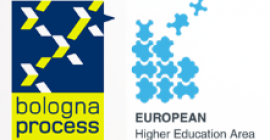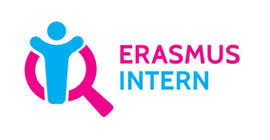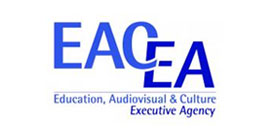Cooperation among organisations and institutions
Cooperation among organisations and institutions
This Key Action supports:
- Partnerships for Cooperation, including Cooperation Partnerships and Small-scale Partnerships;
- Partnerships for Excellence, including Centres for Vocational Excellence, Teachers Academy and Erasmus Mundus Action;
- Partnerships for Innovation, including Alliances and Forward-looking projects;
- Capacity Building projects in the field of youth;
- Not-for-profit European sport events.
The Actions supported under this Key Action are expected to contribute significantly to the priorities of the programme, to bring positive and long-lasting effects on the participating organisations, on the policy systems in which such Actions are framed as well as on the organisations and persons directly or indirectly involved in the organised activities.
This Key Action is expected to result in the development, transfer and/or implementation of innovative practices at organisational, local, regional, national or European levels.
Depending on the field addressed and the type of applicant, these actions are managed either by the National Agencies or by the European Education, Audio-visual and Culture Executive Agency (EACEA). All details about who can apply and where to apply are specified in the pages below.
For the participating organisations, projects supported under this Key Action are intended to produce the following outcomes:
- innovative approaches for addressing their target groups, by providing for example: more attractive education and training programmes, in line with individual needs and expectations; use of participatory approaches and digital methodologies; new or improved processes of recognition and validation of competences; greater effectiveness of activities for the benefit of local communities; new or improved practices to cater for the needs of targets groups with fewer opportunities and to deal with differences in learning outcomes linked to the geographical and socio-economic disparities; new approaches to address social, ethnic, linguistic and cultural diversity; new approaches to better support competitiveness and employment in particular at regional and local level; recognition of excellence in language learning or teaching through the European Language Label;
- a more modern, dynamic, committed and professional environment inside the organisation: ready to integrate good practices and new methods including digital capabilities into daily activities; open to synergies with organisations active in different fields or in other socio-economic sectors; strategic planning of professional development for staff in line with individual needs and organisational objectives;
- increased capacity and professionalism to work at EU/international level: improved management competences and internationalisation strategies; reinforced cooperation with partners from other countries, other fields of education, training and youth and/or other socio-economic sectors; increased allocation of financial resources (other than EU funds) to organise EU/international projects in the field of education, training and youth; increased quality in the preparation, implementation, monitoring and follow-up of EU/international projects;
- increased knowledge and awareness regarding sport and physical activity:
- increased awareness of the role of sport in promoting social inclusion, equal opportunities and a healthy lifestyle;
Projects funded under this Key Action are also likely to have a positive impact on the persons directly or indirectly involved in the activities, such as:
- increased sense of initiative and entrepreneurship;
- increased competence in foreign languages;
- increased level of digital competence;
- greater understanding and responsiveness to all kinds of diversity, e.g. social, ethnic, linguistic, gender and cultural diversity as well as diverse abilities;
- improved levels of skills for employability and new business creation (including social entrepreneurship);
- more active participation in society;
- more positive attitude towards the European project and the EU values;
- better understanding and recognition of skills and qualifications in Europe and beyond;
- improved competences, linked to occupational profiles (teaching, training, youth work, sport coaching, etc.);
- better understanding of practices, policies and systems in education, training, youth and sport across countries;
- better understanding of interconnections between formal, non-formal education, vocational training, other forms of learning and labour market respectively;
- increased opportunities for professional development;
- increased motivation and satisfaction in daily work;
- increased practice of sport and physical activity.
At systemic level, they are expected to trigger modernisation and reinforce the response of education and training systems and youth policies to the main challenges of today's world: environmental sustainability, digital transformation, employment, economic stability and growth, but also the need to promote social, civic and intercultural competences, intercultural dialogue, democratic values and fundamental rights, social inclusion, mental health and well-being, non-discrimination and active citizenship, critical thinking and media literacy.
Therefore, the impact of this Key Action is intended to be:
- increased quality of education and training, youth work and sport practices in Europe and beyond: combining higher levels of excellence and attractiveness with increased opportunities for all;
- education, training and youth systems that are better aligned to the needs of and opportunities offered by the labour market, and closer links to business and the community;
- improved provision and assessment of basic and transversal skills, particularly: entrepreneurship, social, civic, intercultural and language competences, critical thinking, digital skills and media literacy;
- increased synergies and links and improved transition between the different sectors of education, training and youth at national level, with improved use of European reference tools for recognition, validation and transparency of competences and qualifications;
- increased use of learning outcomes when describing and defining qualifications, parts of qualifications and curricula, in support to teaching and learning and in assessment;
- increased awareness and openness to social diversity and increased inclusiveness and accessibility of education systems and possibilities
- new and increased inter-regional and transnational cooperation of public authorities in the fields of education, training and youth;
- more strategic and integrated use of ICTs and open educational resources (OER) in education, training and youth systems;
- increased motivation for language learning through innovative teaching methods or better links to practical use of language skills required by the labour market;
- reinforced interaction between practice, research and policy.
- increased level of participation in sport and physical activity as a tool for health and well being
- increased knowledge on how to tackle cross-border threats to the integrity of sport, such as doping, match fixing and violence, as well as all kinds of intolerance and discrimination better support of good governance in sport and dual careers of athletes;
- increased recognition of voluntary activities in sport;
- increased mobility of volunteers, coaches, managers and staff of non-profit sport organisations;
- increased social inclusion and equal opportunities in sport.









